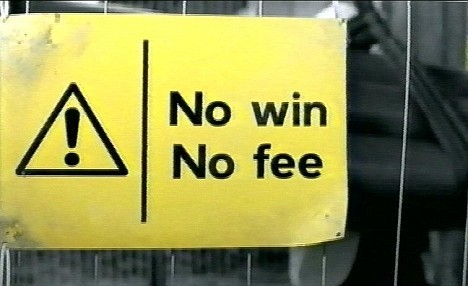 Jack Straw’s column in the Times today (£) contains the following revelation:
Jack Straw’s column in the Times today (£) contains the following revelation:
‘Our records indicate that you may be entitled to £3,450 for the accident you had. To claim free reply CLAIM to this message,” went the text that my pal Phil Riley received last week. This “accident” was, in truth, a minor prang. Phil had stopped in traffic. The chap behind drove into him, with minor damage to Phil’s car; no personal injuries. The other driver’s insurer paid Phil’s repair bill. Within days of this prang, 18 months ago, Phil was bombarded with texts and personal calls to tell him that if he would make a claim, three or four thousand pounds would be his for the personal injury he had suffered. He told the callers what they were doing was amoral. He had no injury. The texts and calls continued. Phil asked me, as his MP, how the claims companies had obtained his details including his mobile phone number. He had never authorised this. Didn’t he have some basic data protection rights? I went to see the Association of British Insurers (ABI) and senior executives of two of Britain’s largest motor insurers and asked them. A long pause, a look of embarrassment, then one of the executives said: “This is the industry’s dirty secret. It’s we, the insurance companies, who sell on this personal information.” Incredulous, I asked how it could be in an insurance company’s interest to sell information to a claims company that was used to make a claim against the self-same company. “If we don’t sell this information, others in the know will do so — recovery firms, garages, credit companies, the insurance company on the other side, even the police.” (One police force made £1.3 million in 2008-9.) The income from this trade is huge, £200-£1,000 for each referral. There can be several from just one accident. Referral fees are now a crucial part of all insurance companies’ revenue streams.’
Straw argues that this drives up the cost of motor insurance. Equally though, this story reveals the sometimes malign effect that Condition Fee Arrangements (‘no-win no-fee’), without which there would be no claims industry of this size, have had on society. It encourages exploitation, price rises and data infringement. The government has shied from wholesale reform of CFAs, recognising their value in opening up the legal system. But, some legal commentators argue is that the government’s judicial and legal aid reforms will actually curb CFAs and the culture of litigation that they have created, which would be no bad thing if it doesn’t affect access.
PS: An MP has been in touch to tell how he filled in an insurance quote form on the net last week, making sure to click the box not to be contacted. Since then his office has been inundated with calls trying to sell insurance. Then last Friday he received the following text, ‘Our records indicate you still have not claimed compensation for your accident. You may be entitled up to £3650. To find out more reply ‘CLAIM’. Free to reply.’
The MP hadn’t even had an accident. Coincidence or another example of “no win no fee” spam?






Comments